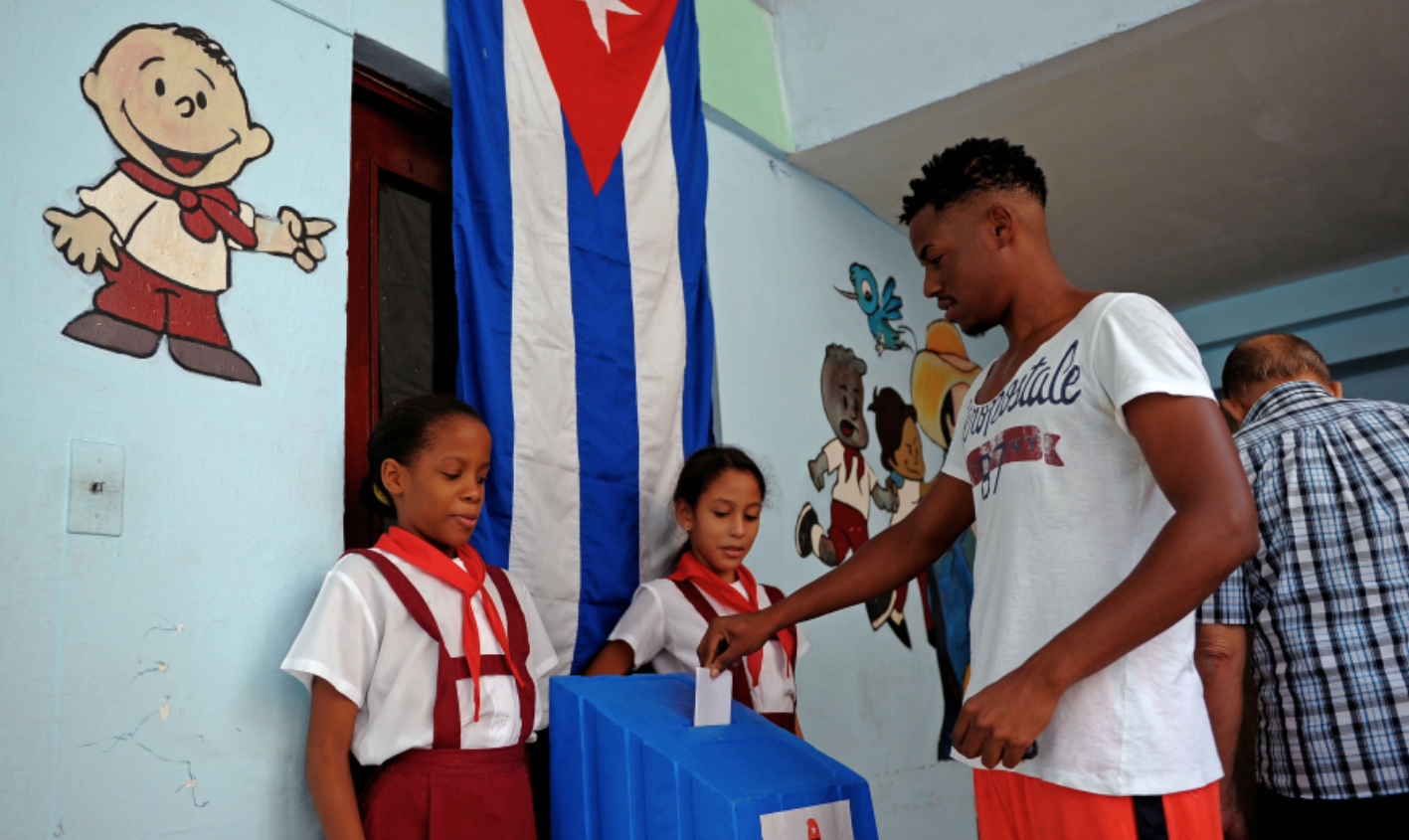On March 26 elections will be held for the National Assembly of People’s Power (ANPP) of Cuba, the longest-lived dictatorship in the hemisphere. With more than six decades in power, its leader is Miguel Díaz-Canel, although under the shadow of the youngest of the Castro family, who at 91 years of age has run again to be “reelected” as deputy.
This election will be regulated by the 1992 Electoral Law, which allows emulating elections in a regime where all transcendental political decisions are made by the Communist Party of Cuba (PCC) elite. This case, but also those of Vietnam, North Korea, Nicaragua or Belarus, make it clear that elections and democracy are not synonymous. Elections are a mechanism for delegating authority, which can operate in democratic (with uncertain results) or autocratic (with no surprises) contexts. And the fact is that, according to Fidel Castro himself, free elections “are a popularity contest” and, therefore, conceptually unacceptable in a communist regime.
Although a new Constitution was approved in 2019 and, with it, a new Electoral Law, the electoral conditions did not change. Therefore, the reader has never seen a municipal, national deputy, or a Cuban governor of another party or, even, of a dissident line to the leadership of the first secretary of the PCC, Miguel Díaz-Canel.
This would be impossible because the Constitution itself establishes that there is only one party, the communist party, and one ideology, the socialist party. In fact, the Constitution empowers the citizenry to take up weapons against anyone who seeks to challenge the regime. In fact, the candidacy commissions of the Communist Party prevent the water from reaching the river by excluding any pre-candidacy that has the slightest whiff of dissidence.
The Cuban regime knows perfectly well that the model that sustains it in power is not that of a liberal democracy as we know it (multiparty system, competitive elections, freedoms, accountability, cross-checks, rule of law, etc.), but an illiberal autocratic model. However, it has not renounced the good press of “democracy” and has tried (with no luck), through ideologues, journalists and all the resources of the State (which are denied to the citizens) to elaborate a discourse claiming a “Cuban-style democracy”, with particular characteristics. As if democracy did not need objective conditions.
This effort has been seen in different instances, but the editorials of the historic newspaper “Granma” on Sundays February 5 and 12, entitled “Our elections (I)” and “Our elections (II)” are striking. In these, we find a deficient effort to justify the limitations to human rights, democracy, and competitive elections in the name of “national unity”, “dignity” and “sacrifice”.
In this context, it is worth remembering that totalitarian regimes do not seek a majority in an electoral process, but unanimity, and this is reflected in a National Assembly without any kind of relative autonomy with respect to the only legalized political party.
The party propaganda organs consider the multi-party system as “a fragmentation of the political forces of the nation”; the financing of campaigns as typical of “the society of capital, of the empire of money and influence”, while it positively highlights the non-existence of debates in Cuba, which it calls “a verbal boxing show”.
In its discourse, the Government assures that “everyone has the right to nominate and to be nominated, and to elect and to be elected to occupy positions in the organs of the People’s Power”. However, in the November 2022 municipal elections, José Antonio Cabrera, who confronted the State power and managed to be nominated as a candidate for delegate by his neighbors of Palma de Soriano, was detained by the State Security and threatened, in order to cancel his candidacy. Similarly, in 2015, Hildebrando Chaviano and Yuniel López were harassed when their neighbors nominated them.
The Nominations Commission is the body in charge of selecting the candidates for the National Assembly of People’s Power. However, this is composed of the mass organizations subordinated to the PCC, so its ultimate function is to prevent real electoral competition. The regime has even considered the National Electoral Council (CEN) as a guarantor of transparency and impartiality, but omitting that its authorities are proposed by the first secretary of the PCC himself, Miguel Díaz-Canel.
In the midst of the year 2023, with free access to the Constitution, the laws, and the record of previous elections, it is impossible, from a technical perspective, not to notice that Cuba’s elections are designed for the PCC to hold on to power at the expense of Cubans’ freedom of choice.
The revolutionary epic and anti-Americanism have left as a result a kidnapped country. It is time for the democratic forces of the region and the world to defend the rights of Cubans, just as they defend their own. Cuba is not a failed state, it is a dictatorship that has laid bare its most basic purpose: to maintain power.
*Translated from Spanish by Camille Henry











